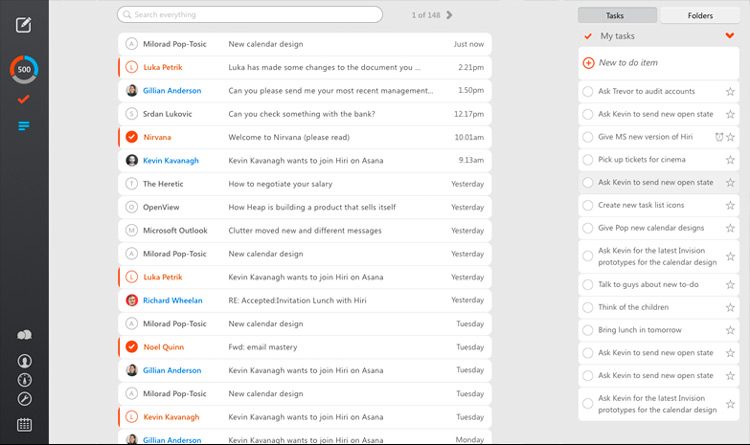 Are Linux users the most valuable customers you can have?
Are Linux users the most valuable customers you can have?
It might sound like a bit of an ego rub, but we think so — and we’re going to tell you why.
Over the years we’ve spoken to a lot of software developers, developers making both free and paid-for software.
And many of them are left impressed by the sheer investment Linux users make in their wares — not just in terms of money but in the effort of reporting bugs, troubleshooting issues, and suggesting improvements.
Generous Penguins are Generous
Back when we used to track the operating system split in contributions to the Humble Bundle we saw time and again that Linux users pay more than their MacOS and Windows counterparts.
While the sum total of the these generous contributions were, inevitably, dwarfed by the combined total from bigger platforms, the gesture is perhaps a sign that Linux users are more appreciative.
Linux users are willing to reward support.
“The more we were willing to support the [Linux] community, the more willing they were to invest the product with feedback [and money]”
Glance at the sizeable monthly user donations to Linux Mint and MATE desktops; at elementary’s pay-what-you-want app store model; or at the super success of Dell’s Linux laptop line and you’ll see that any project or idea that treats Linux users as users ends up very well rewarded.
Hiri is an Example of this Mutual Support
Hiri is cross-platform desktop email client allows users to read, send and manage email on Microsoft Exchange servers, as well as those on Hotmail, Outlook and Office265 accounts.
Last month it was released a Snap app for Linux.
Now, Hiri didn’t have to support Linux. The vast bulk of its customer base is, one assumes, running Windows (the logic being: if you’re using Windows email services, you’re probably ankle-deep in the Windows ecosystem).

Hiri says it didn’t initially consider Linux support. They assumed that Linux users wouldn’t want to pay for software.
Indeed, some early feelers put on Reddit reinforced this hesitation, with the general paid software = bad mantra in full flow.
But Hiri wanted to support Linux. They knew they had built something that could run on Linux (the app is built using PyQt and Qml) and they knew it could add value and convenience to those using the platform (people who need Exchange email support on Linux are generally busy people).
“[Linux users] are a pleasure to deal with compared to others. They just love this stuff.”
“Most of the guys on our team have a soft spot for Linux, so regardless of my failure to attract the community – I walked in one day to find our devs running Hiri on Ubuntu,” David Power, Founder and COO at Hiri, told us via e-mail.
“Linux users got in touch to see if we had any plans to support Linux. We gave them the version the guys had created, which was [an early alpha] at that stage. None the less (sic), the users stuck around. Not only did they stick around, they gave us thoughtful feedback and were willing to send logs etc. to help us squash bugs.”
Quality feedback is crucial to any product or service — and the company says it was not getting this from other OS users.
‘Hiri’s gamble paid off: the company has a healthy stream of revenue from Linux users’
Not that supporting Linux was a walk in the park, of course.
“Linux is fragmented. Things don’t always behave as they should and we spend quite a bit of time supporting Linux users on different distros,” Powers adds.
“But we learned that the more we were willing to support the community, the more willing they were to invest the product – with feedback and a bit of cash.”
And the efficiency of Snaps made it even easier still.
The result: Hiri’s gamble paid off.
The company now has a “very healthy stream of revenue from Linux users” according to Power, who adds that Linux “are a pleasure to deal with compared to others. They just love this stuff.”
I won’t pretend that this is anything but a niche product, and its licensing model won’t suit everyone. But as a Linux user I’m glad there is at least the choice of something like Hiri available on Linux.
Whats more, just because it is closed source software now doesn’t mean it always will be. Business models change as needs and markets change. The devs behind this app also contribute back to the upstream projects it uses with patches, bug fixes and advocacy.
And as this post points out, that kind of support is sometimes just as valuable.
Epilogue: Favouring Open Source and Open Minds
I know that some people reading this will be uneasy with me being positive about the fact that some Linux users are willing to pay for software — but I urge you to keep an open-mind.
Do I, like many, prefer open-source where possible? Abso-freakin’-lutely. But sometimes a closed-source or paid-for tool is required to fill a gap, itch a scratch, or do something that a FOSS or free equivalent can’t.
Besides, I’d be a hypocrite to ignore the positives here when I use Google Chrome, Spotify for Linux Preview, and Dropbox; I use Steam to play a multitude of closed-source games; chat using Discord and Skype, and use proprietary GPU drivers, closed-source firmware blobs, and watch DRM ensconced content on Netflix and Amazon Prime… and so on.

